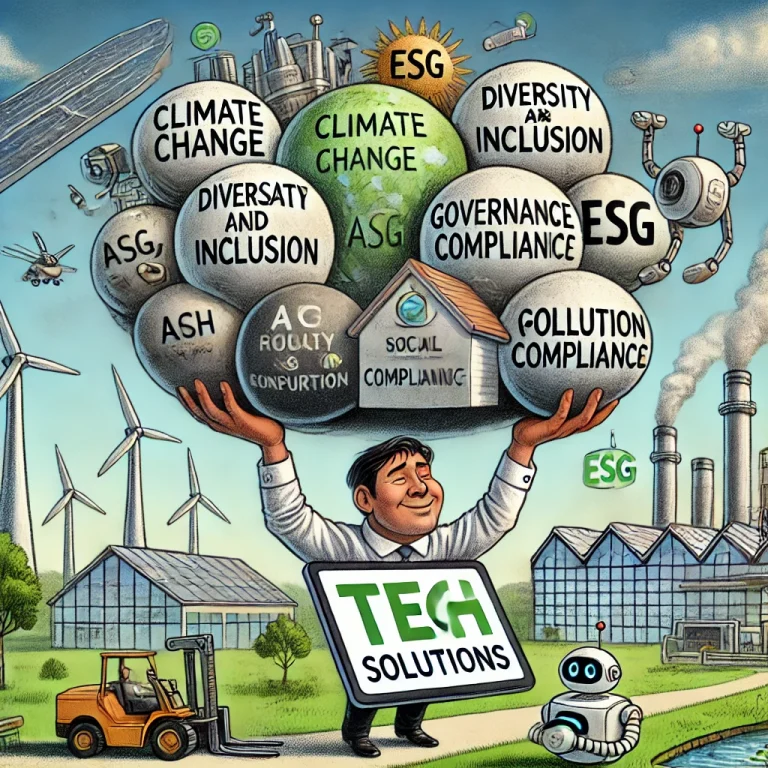ESG TRENDS AND INSIGHTS TO WATCH IN 2025
Introduction
The Environmental, Social, and Governance (ESG) landscape continues to evolve rapidly, driven by changing regulations, technological advancements, and geopolitical dynamics. Notably, the recent shift in the U.S. administration has brought significant changes to the country’s ESG commitments, influencing global ESG strategies across nations, corporations, and organizations with ties to U.S. politics.
For example, financial giants such as Morgan Stanley and Wells Fargo have recently exited the Net-Zero Banking Alliance (NZBA), a move applauded by certain political factions. Attorney General Ken Paxton of Texas stated, “This is great news for Texas. On August 21, I strongly encouraged Wells Fargo to leave the NZBA due to its unlawful ESG commitments. On December 19, Wells Fargo confirmed they would leave because of my request.”
Despite the political turbulence, many companies are independently driving ESG integration within their operations. Businesses recognize that sustainability is essential for profitability, risk management, regulatory compliance, and market competitiveness. The business case for ESG continues to resonate with organizations focused on long-term stakeholder value and resilience.
For example, financial giants such as Morgan Stanley and Wells Fargo have recently exited the Net-Zero Banking Alliance (NZBA), a move applauded by certain political factions. Attorney General Ken Paxton of Texas stated, “This is great news for Texas. On August 21, I strongly encouraged Wells Fargo to leave the NZBA due to its unlawful ESG commitments. On December 19, Wells Fargo confirmed they would leave because of my request.”
Despite the political turbulence, many companies are independently driving ESG integration within their operations. Businesses recognize that sustainability is essential for profitability, risk management, regulatory compliance, and market competitiveness. The business case for ESG continues to resonate with organizations focused on long-term stakeholder value and resilience.
For example, financial giants such as Morgan Stanley and Wells Fargo have recently exited the Net-Zero Banking Alliance (NZBA), a move applauded by certain political factions. Attorney General Ken Paxton of Texas stated, “This is great news for Texas. On August 21, I strongly encouraged Wells Fargo to leave the NZBA due to its unlawful ESG commitments. On December 19, Wells Fargo confirmed they would leave because of my request.”
Despite the political turbulence, many companies are independently driving ESG integration within their operations. Businesses recognize that sustainability is essential for profitability, risk management, regulatory compliance, and market competitiveness. The business case for ESG continues to resonate with organizations focused on long-term stakeholder value and resilience.
ESG Tech Takes Center Stage
In 2025, companies are transitioning away from traditional, chaotic ESG data collection and management processes. ESG technology is now at the forefront, offering streamlined, reliable, and accurate solutions. From data collection and analysis to automated ESG report generation, technology is revolutionizing how companies approach sustainability.
Organizations are leveraging ESG tech to optimize supply chains, predict risks, and foster innovation. Firms and consultants that fail to integrate ESG technology into their services risk falling behind in a competitive market. Moreover, ESG tech is being used to measure the impact of sustainability initiatives, highlighting areas of improvement and success with unparalleled precision.
Sustainability in the Financial Sector
The financial sector is undergoing a significant transformation as regulators push for enhanced climate risk disclosures. Starting January 2025, the Central Bank of Kenya (CBK) will require voluntary climate finance risk disclosure for banks. By January 2027, these disclosures will become mandatory, aligning Kenya’s financial sector with global sustainability standards.
This regulatory shift is expected to enhance risk management and resilience across the banking industry, ensuring that financial institutions are better equipped to navigate climate-related challenges and opportunities.
Scaling High-Impact Solutions
A growing number of companies are moving away from fragmented sustainability efforts toward scalable, high-impact solutions. The focus is shifting to initiatives that deliver both environmental benefits and profitability.
Companies are shifting their perspective on sustainability. Instead of merely asking, "How can we make our company more sustainable?" they are now exploring, "How can we leverage sustainability to enhance the performance of our products and services or improve affordability?"
This evolution in mindset reflects a deeper integration of sustainability into core business strategies. It highlights the realization that sustainability is not just about compliance or reputation—it’s a driver of innovation, efficiency, and competitiveness. By aligning sustainability with product performance and cost-effectiveness, companies are unlocking new opportunities for growth and long-term value creation.
Research by McKinsey & Company reveals that leading multinational firms are adopting strategic approaches to embed sustainability across their portfolios. By prioritizing scalable solutions, companies can drive meaningful change while achieving business objectives.
These trends outline the dynamic and increasingly integral role of ESG in shaping the future of business. As 2025 unfolds, organizations that proactively embrace these insights will be better positioned to thrive in a rapidly changing global landscape.
ESG Advisory Services https://scriberegistrars.com/esg-and-sustainability-consulting/
ESG Capacity Building https://scriberegistrars.com/esg-masterclass/
GRI Training 2025: https://sgb.ac.ke/gri-training/ www.sgb.ac.ke







